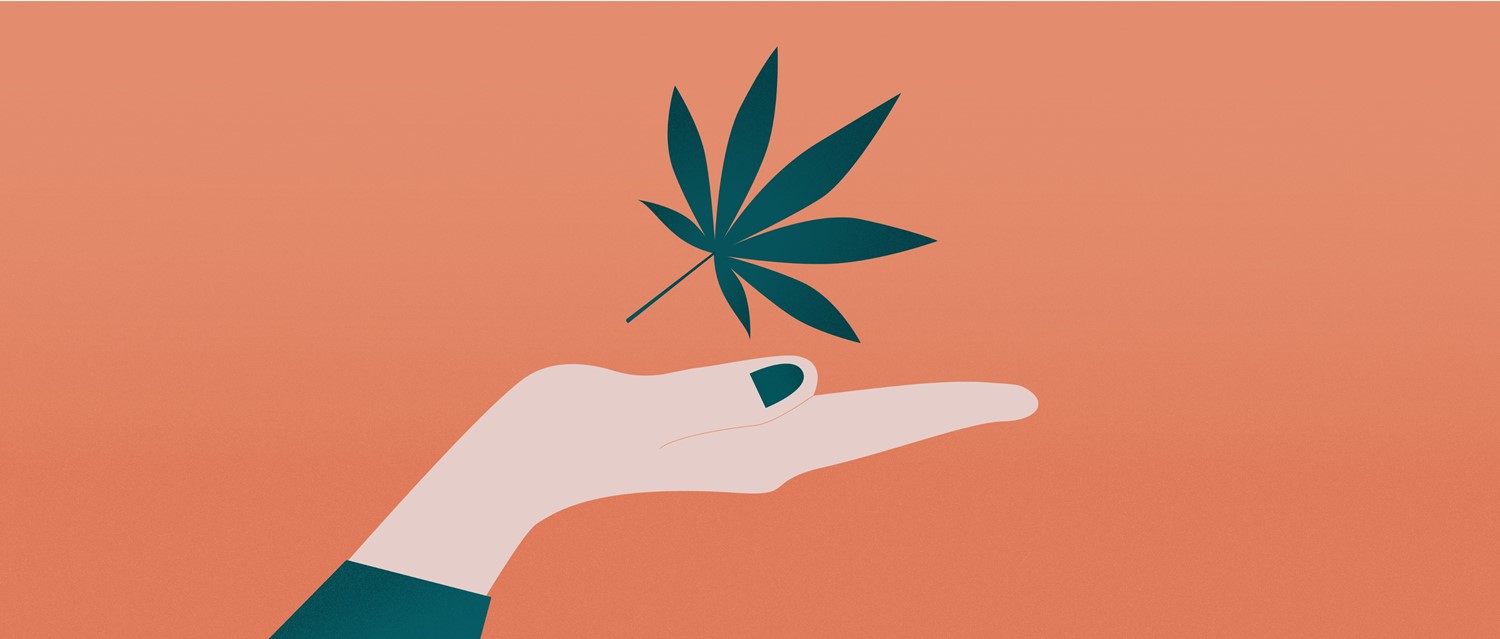
What is CBD oil and does it work?
Peer reviewed by Dr Sarah Jarvis MBE, FRCGPLast updated by Abi MillarLast updated 8 Feb 2019
Meets Patient’s editorial guidelines
- DownloadDownload
- Share
- Language
- Discussion
Over the last year or so, cannabidiol (CBD) has hit the mainstream. A constituent of the cannabis plant - albeit not a psychoactive one - CBD oil has been billed as having all the health benefits of medical cannabis without the side effects.
In this article:
Continue reading below
What does CBD oil do?
If you went by some of the more effusive reports online, you might think CBD was a miracle medicine. People are buying it for all kinds of reasons, citing everything from chronic pain to cancer symptoms. Some use it to manage their anxiety, while others swear by CBD for nausea, epilepsy or insomnia.
This said, you won’t find any of these conditions listed on the packaging. Despite the hype around its health benefits, CBD is currently sold as a food supplement, not a medicine.
"While there is certainly a growing body of evidence in support of CBD's medical uses, no one is as yet going down the 'medicine' route of regulation," says Michael Stewart, Patient's medicines information pharmacist. "So currently all commercially available CBD products will be marketed with no medical claims. There is no requirement for clinical trials into their safety and efficacy."
In short, it can be difficult to gauge whether CBD is worth your while. Is it the panacea that some have claimed, or is it little more than snake oil?
What is it CBD oil?
Back to contentsThe first point to bear in mind is that CBD is different from marijuana. If you were to analyse a cannabis plant, you'd find more than 100 different chemicals, the most famous of which are tetrahydrocannabinol (THC) and CBD. It's the THC that's responsible for getting people 'high' (and is also why recreational cannabis remains illegal).
CBD oil, however, is derived from industrial hemp plants, a legal strain of cannabis that contains almost no THC at all. As Stewart points out, this oil has technically always been legal - it has simply undergone a marketing makeover.
"Historically CBD has been available as hemp seed oil," he says. "Newer products are tested for CBD content so they are essentially a more refined version of hemp oil. CBD oil comes in a variety of forms (usually taken by mouth): liquid oil, 'gummies' or 'jellies', capsules, sprays and more recently, vape juices. The oil can also be mixed into creams and ointments or applied directly to the skin."
In recent months, manufacturers have been cashing in on the CBD boom with CBD-infused beers, hair treatments and even marshmallows. However, the most common route of administration is simply a few drops under the tongue. For example, Jacob Hooy CBD Oil 5% (available at Holland & Barrett), is designed to be used a few times a day, leaving the oil in the mouth for a minute before swallowing.
Continue reading below
Does CBD oil work?
Back to contentsAs to whether it actually works, this is where things get confusing. Since the manufacturers aren't allowed to make any health claims, it's difficult to state the benefits with any certainty.
In fact, since food supplements aren't regulated as stringently as medicines, you can't always be sure about what you're getting.
"There are a lot of people effectively using CBD as a medicine, without the controls you'd get if it were a medicine," says Professor Mike Barnes, a neurologist and one of the UK's leading medical cannabis experts. "There's much less consistency batch to batch, and in some cases the products haven't contained what they say on the label."
It falls to the consumer, then, to do their research and shop around. Barnes recommends looking out for products that have a Certificate of Analysis on their website.
"Unfortunately it's down to the consumer to check that out as best they can," he says. "In order to market CBD as a medicine, companies would have to gain approval with the MHRA, which is a very long-winded and expensive business. But the sooner it comes into the medical family, the better."
Potential benefits of CBD oil
Back to contentsLuckily, CBD is attracting significant research attention. Over the last few years, there have been CBD-related clinical trials across a wide range of diseases.
For instance, one 2015 review paper concluded that CBD has 'considerable potential as a treatment for multiple anxiety disorders'. A recent study suggests that CBD may represent 'a new class of treatment' for psychosis. And Epidiolex - a CBD-based medicine - has been approved in the USA for treating two types of epilepsy.
"CBD clearly has medical value - on that there is absolutely no doubt at all," says Barnes. "It shares a majority of health benefits with its cousin THC, but there are a few things it's more specifically beneficial for. One thing that it's good for that THC isn't good for is anxiety, because THC can produce anxiety but CBD counteracts that effect. It also seems to be particularly good for epilepsy. It's an analgesic just like THC; it's anti-nausea just like THC, and generally shares all those other benefits."
However, there is still a dearth of large, long-term studies, with many questions remaining unanswered. For instance, we don't know exactly what dose of CBD is best for which indication. And when it comes to the glowing testimonies online, it's hard to say what's down to the CBD and what's just the placebo effect.
It's also worth pointing out that in some cases, medical cannabis may prove more effective than CBD alone. We only need to think of Alfie Dingley and Billy Caldwell - children with drug-resistant epilepsy, who were treated with cannabis oil. Had CBD been sufficient to help them, their cases would not have been so contentious.
"What we'd suggest is you'd start with a CBD product for any indication because it's not psychoactive," says Barnes. "But if that doesn't work well enough, you'd increase the proportion of THC till you got a response."
Continue reading below
Is CBD oil safe?
Back to contentsIn the meantime, it's really up to your own discretion whether you should give CBD a try.
"The best advice I can give to anyone thinking of trying CBD oil is to become an informed consumer," says Stewart. "Do your research into the products you intend to use, as you might need to try different forms or strengths, depending on your needs."
He adds that CBD oil is safe for most people, provided you source a reputable product and follow the manufacturer's guidance. The side-effects (which can include mild dizziness or drowsiness) are typically minor - but if you notice anything worrying, you should ask your pharmacist for advice. It's also important to watch out for potential drug interactions.
"CBD oil inhibits the action of enzymes that break down drugs in the body," he says. "This means it could increase the effects of some medicines, possibly leading to further side-effects. Ask your pharmacist about any specific medicines you are taking."
To summarise, CBD is safe and potentially beneficial. And although there are no guarantees, it is hardly surprising that the oil has piqued so many people's curiosity.
"When you start using CBD, keep a brief diary of your symptoms before and after use; this will help you keep track of any improvement, or lack of it, and any side-effects," says Stewart. "If you are getting benefit with little or no ill effect, then carry on using it."
Patient picks for Mental health medicines

Mental health
When should you stop taking antidepressants?
You may have been advised by your doctor to stop antidepressants or you may have chosen to stop them yourself.
by Dr Gurvinder Rull, MBBS

Mental health
Can antidepressants cause vivid dreams?
Within a few weeks of taking antidepressants, the fog of anxiety I'd been living with for years began to lift. Although my anxious thoughts hadn't disappeared, the constant feeling of dread started to ease and things seemed easier to deal with.
by Lydia Smith
Article history
The information on this page is peer reviewed by qualified clinicians.
8 Feb 2019 | Latest version

Ask, share, connect.
Browse discussions, ask questions, and share experiences across hundreds of health topics.

Feeling unwell?
Assess your symptoms online for free
Sign up to the Patient newsletter
Your weekly dose of clear, trustworthy health advice - written to help you feel informed, confident and in control.
By subscribing you accept our Privacy Policy. You can unsubscribe at any time. We never sell your data.